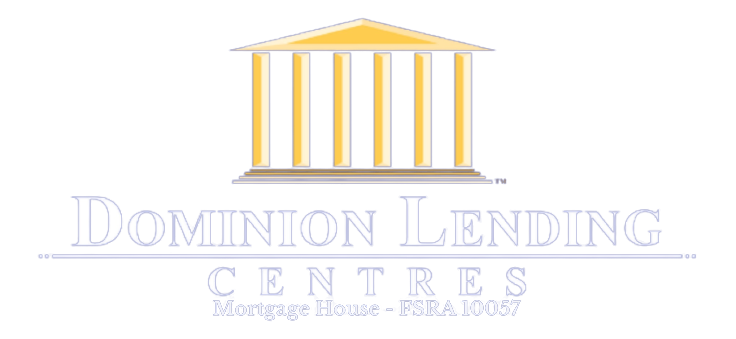You’ve located your ideal residence and are prepared to make what will likely be the largest purchase of your life. While a select few can purchase a home outright, the majority of us must apply for a mortgage from a lender.
But what are the requirements for this hefty loan? Lenders analyze mortgage applications and look for a variety of things, including a stable income, minimal debt load, and an overall good credit history.
• Credibility and Reputation
In order to find the ideal mortgage lender, you must first evaluate their trustworthiness and reputation. The track record, level of client happiness, and dependability of a lender are frequently reflected in that lender’s reputation. Look for lenders who have a significant market presence, a history of honest lending procedures, and good customer feedback. Reading internet reviews, asking friends and family for recommendations, and contacting the Better Business Bureau or other pertinent organizations are all ways to conduct research on this.
• Loan Terms and Interest Rates
In the realm of finance, interest rates and loan conditions are critical components of borrowing and lending. Interest rates represent the cost of borrowing money, whereas loan periods specify how long borrowers must return their debts. Understanding these ideas is critical for making sound financial decisions, whether you’re getting a mortgage, an auto loan, or any other type of loan. Your interest rate type (fixed or variable) and loan term selection can have a substantial impact on your monthly payments, overall loan cost, and financial stability.
• Fees and Closing Expenses
In addition to interest rates, the fees and closing costs connected with getting a mortgage must be considered. Mortgage lenders may charge origination costs, application fees, appraisal fees, and other fees. These charges can quickly build up, affecting the overall affordability of your loan. Request a Loan Estimate from each lender, which is a standardized document that lists all of the fees associated with your loan. This will allow you to precisely compare the overall cost of borrowing from various lenders.
• Loan Programs and Alternatives
Different lenders provide different loan plans and options to accommodate different financial situations and ambitions. Conventional loans, FHA loans, VA loans, and USDA loans are some of the most frequent mortgage programs. Each has its own set of eligibility restrictions, down payment requirements, and benefits. A competent mortgage broker or lender should provide a number of loan options and guide you through the decision process, assisting you in determining which one best meets your needs.
• Communication and Customer Service
Mortgage applications can be complicated and time-consuming. As a result, excellent customer service and clear communication are essential. When you question about the lender’s services, pay attention to how attentive and helpful the lender’s team is. Effective communication might mean the difference between a stress-free mortgage transaction and one fraught with misunderstanding and frustration. A lender that appreciates customer service will be accessible to answer your questions and handle your issues at every level of the mortgage process.
• Procedure for Pre-Approval
It’s a good idea to get a mortgage pre-approval before going house hunting. The lender will evaluate your financial circumstances and provide a conditional commitment for a loan amount during this process. This process will be streamlined by a competent mortgage lender, making it quick and efficient. A pre-approval letter not only communicates to sellers that you are a serious and qualified buyer, potentially giving you an advantage in a competitive home market.
• Accountability and Transparency
When working with mortgage lenders, transparency is essential. Look for a lender who is up forthright about all components of the loan, such as fees, interest rates, and prospective term adjustments. They should also provide you a thorough description of the loan arrangement and any potential dangers. Choose a lender who is accountable for their activities and can resolve any issues or complaints in a timely and professional manner.
• Reputation for On-Time Closing
In the real estate sector, meeting closing timelines is critical. Closing delays can result in increased fees and inconvenience for both buyers and sellers. In order to evaluate mortgage lenders, inquire about their track record of loan closings on schedule. A lender with a reputation for prompt closings can help make the home-buying process go more smoothly and reduce stress for all parties involved.
• Financial Security
Another key factor to examine is a mortgage lender’s financial health. A financially solid lender is more likely to keep its promises and deliver consistent service throughout the term of your loan. Reviewing a lender’s financial reports, credit rating, and industry reputation can help you determine their financial viability.
• Additional Resources and Services
Some mortgage lenders provide borrowers with additional services and tools. These may include financial advice, homebuyer education, and online mortgage management tools. While not required, these supplementary services might be beneficial, especially for first-time homebuyers or those in need of financial advice.
• Local Knowledge and Expertise
Working with a mortgage company or lender who has local knowledge and expertise might be useful when purchasing a home in a certain geographic area. They may be more aware about local market conditions, which can assist you in selecting the optimal loan program and best rate mortgage for your situation.
• Underwriting Flexibility
Each borrower’s financial position is different, and occasionally it may not meet a lender’s normal underwriting requirements. Therefore, it’s critical to pick a lender with a flexible underwriting procedure. In particular, if you have unusual financial circumstances, a lender that is prepared to collaborate with you to discover solutions and take unusual elements into account can be a tremendous advantage.
Conclusion
Choosing the best mortgage lender is a crucial choice that could significantly affect your financial future. You may make an informed decision that supports your homeownership aspirations by taking into account aspects like reputation, interest rates, fees, customer service, transparency, and financial stability. Do your homework and compare several lenders to guarantee you get the greatest mortgage deal available. This will pave the path for a successful and financially sound home buying experience.
FAQs
1. What factors should I think about while selecting a mortgage lender?
Consider the lender’s reputation, loan options, interest rates, fees, and customer service.
2.Can I negotiate conditions and rates with a mortgage lender?
Yes, especially if you have good credit and are a strong borrower, you may frequently negotiate interest rates and some fees.
3.What paperwork must I give a lender when I apply for a mortgage?
Be prepared to offer proof of your identification and financial stability in the form of documents like tax records, pay stubs, bank statements, and ID.
4.Should I give preference to a lender with nearby branches for in-person assistance?
It may be beneficial, particularly if you value in-person relationships or deal with complicated financial problems.




